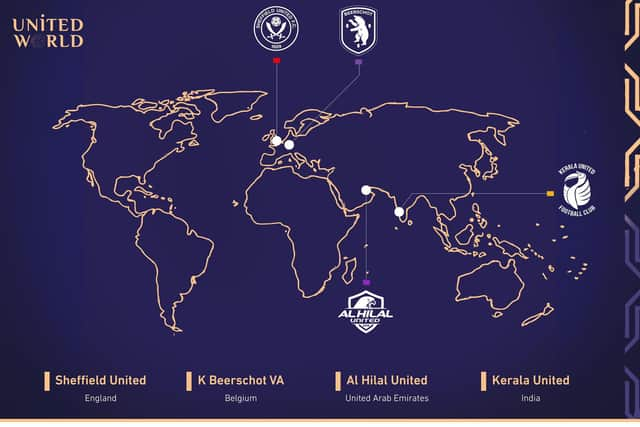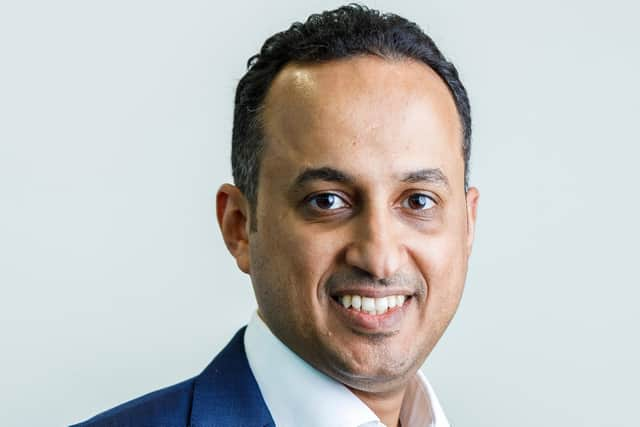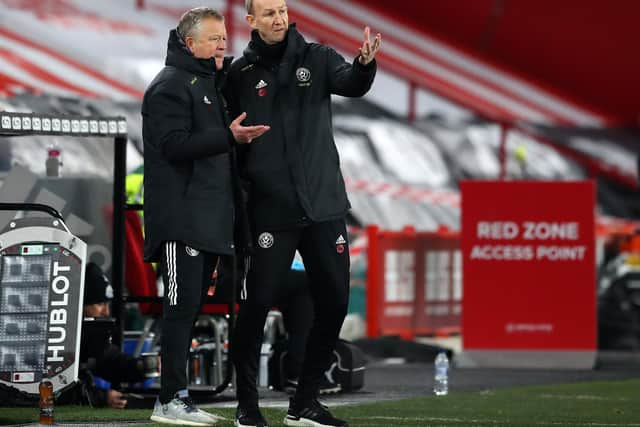Analysis: Introducing Kerala United, the latest addition to the Sheffield United family
and live on Freeview channel 276
But the city, certainly the fastest growing in India and maybe even the world by some economic measures, could soon become a bucket list destination for aspiring young footballers as well as keen theologians or ornithologists charting migration patterns across the subcontinent.
“Our vision is to make Kerala United a competitive, community focused club playing at the highest level in Indian football,” Abdullah Alghamdi says, describing his ambitions for one of the noisiest new entrants onto the country’s rich sporting scene. “Our focus will be strengthening the foundations, building an academy and developing home grown talent.
Advertisement
Hide AdAdvertisement
Hide Ad"Through hard work, commitment and the unrivalled support of our fans, we are confident of achieving great things.”


The club, previously known as Calicut Quartz FC, is the latest addition to United World; a growing portfolio of names controlled by HRH Prince Abdullah bin Musa’ad bin Abdulaziz Al Saud, the owner of Sheffield United. Further additions are expected to be confirmed shortly, after negotiations began with a French Ligue 2 team before Christmas.
But even though they are starting from small beginnings, only turning professional a decade ago, Kerala United arguably have more in common with their cousins from South Yorkshire than, say, Belgian top-flight outfit Beerschot or Al Hilal United of the Dubai Second Division League.
Also known as the ‘City of Hills’, Malappuram is widely recognised as being India’s ‘Soccer Capital’. Its home state is possibly the only area of the country where the game, which was effectively born in Sheffield over a century and a half ago, supersedes cricket in the public’s consciousness.
Advertisement
Hide AdAdvertisement
Hide AdThe possibilities, Alghamdi believes, are huge. However, the sporting benefits of United World’s most recent acquisition are unlikely to be felt at Bramall Lane anytime soon. A glance at some of the stadia within India’s second tier, where Kerala United compete, confirms this should be viewed as a long term project.


“Kerala United are now fully integrated into the United World group, meaning they are managed in the same way as other clubs in the portfolio,” Alghamdi, its chief executive officer, says. “Internally, the teams collaborate on best practices and help each other on the commercial front. The same thing is happening on the technical and governance side, where Kerala United is benefiting from the expertise of the group and its sister clubs.”
“It’s well publicised,” Alghamdi continues, referring to the network of relationships within United World. “It’s already paying out in India, helping attract the talent we need to form our team.”
India, and Kerala in particular, were obvious destinations for Alghamdi and others looking to extend United World’s reach. The country is beginning to climb the international hierarchy. The region is recognised as its football heartland. What isn’t clear yet, though, is how the passion of its inhabitants can be translated into something tangible for United.
Advertisement
Hide AdAdvertisement
Hide Ad“With a population of almost 1.4 billion, India is always at the top of the list of countries with huge potential for any sector,” Alghamdi explains. “European football drew a cumulative audience of over 130 million viewers last season, with the English Premier League accounting for almost 70 million - larger than the UK’s population.”


The thinking behind United World - hoovering up potential at a fraction of the costs usually involved - is obvious. With Chris Wilder’s side 14 points adrift of safety in the Premier League and seemingly destined for relegation, coaching staff at Bramall Lane will be impatient to start reaping the rewards soon.
Intriguingly, although these have previously been framed in pure footballing terms, Alghamdi tells The Star that a variety of criteria must be used to gauge its success. Some of those within the group are designed to be revenue drivers. Others are expected to contribute technical knowledge, sporting talent and expertise. United, and to a lesser extent Beerschot, are capable of doing both. However, the imminent loss of a seat at the most prestigious and lucrative table in European sport presents an immediate challenge for the organisation. Politically, it might be difficult. But Wilder will argue this means time, money and effort should be concentrated on ensuring United make an immediate return to the top-flight.
One suspects the project’s success will depend upon the ability of those involved to perform a delicate balancing act; making sure everyone involved feels as if they are gaining more than they are actually giving.
Advertisement
Hide AdAdvertisement
Hide Ad“The United World vision assigns clear roles for each club,” explains Alghamdi. “Some benefit on the technical side. Others will contribute more commercially and others both.”
The United World community is incredibly diverse, in terms of profile, culture and history. Founder members of the Premier League and scorers of its first ever goal, United are one of only four English sides to win each of the country’s leading four divisions. Al Hilal United compete in a tournament which was only created two years ago. Many of their rivals represent private academies and academic institutions.
Kerala United sit in the middle. Not the biggest name in the region among English fans - that honour falls to Kerala Blasters of the Indian Super League - they are still a recognised brand despite the name change and command a famously loyal following. The move to Malappuram, around an hour and a half drive away from their previous base in Kozhikode, could see some of this drift away. But it also opens up new avenues for Alghamdi and his colleagues on the ground to explore.
“In a country where football is getting more popular every year,” Alghamdi says, explaining the choice of location, “Kerala is known as its heart in India. No fan base in India comes close to its passion. That’s why it is known as the Mecca of Indian football.”